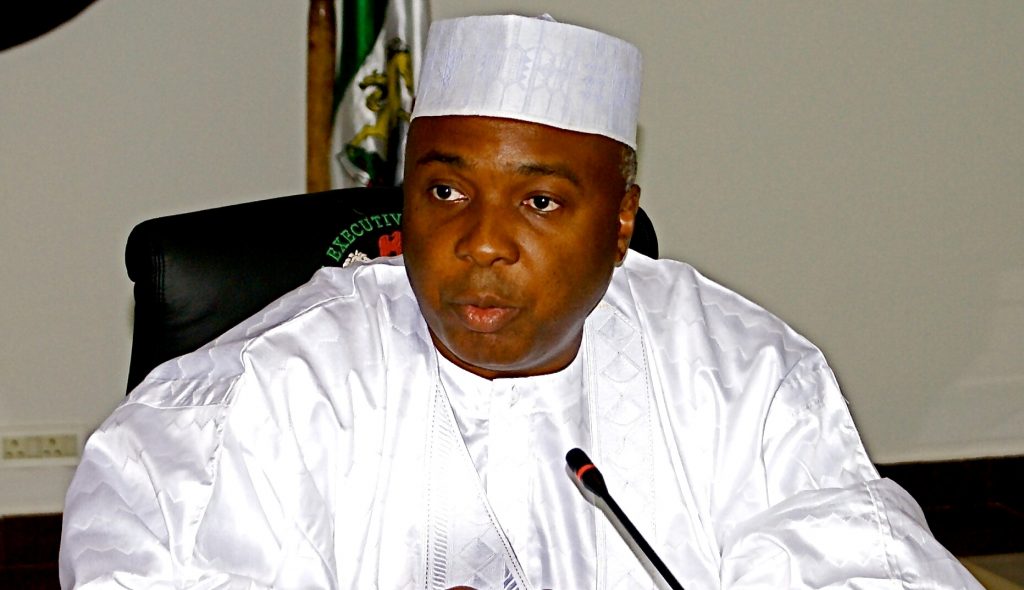
As Nigerian Children mark this year’s Children’s day today, Senate President, Bukola Saraki and a group of Civil Society Organization (CSOs) yesterday called on all the states of the Federation to immediately begin the process of complete domestication and strict implementation of the Child Rights Act (CRA).
This consensus was reached at a roundtable on “Advancing the Rights of the Nigerian Child” organized by the Office of the Senate President in commemoration of the 2017 Children’s Day celebration in Abuja.
Personalities and CSOs that participated in the roundtable discussion included the Speaker of the Bauchi State House of Assembly, Alhaji Kauwa Damina, representatives of the European Union (EU), The Malala Foundation, United Nations Children’s Fund (UNICEF), National Council of Women Societies (NCWS), Youths of Africa, National Democratic Institute (NDI), Civil Society Legislative and Advocacy Centre (CISLAC), and a cross section of teachers, students and pupils from primary and secondary schools in Abuja.
On his part, Senate President Saraki who particularly wished Nigerian children a happy celebration, said that the event was meant to celebrate the resilience and perseverance of Nigerian children in overcoming the many obstacles of childhood, adding, “With this in mind, we celebrate the recent release of the 82 Chibok girls and take time to make constructive and critical evaluation of our commitment to the next generation.”
Saraki who lamented that out of every five children, two currently live in poverty, while millions were in poor housing, crowded rooms, squalid conditions, on streets and affected by communal conflicts and insurgency.
He said, “This type of beginning can hold a child back for the rest of his or her life. At just 22 months, a poor child’s skills already trail behind those of better-off toddlers. At age five, that poor child, even if he or she is very bright, will have been overtaken at school by a less talented but more privileged class mate. “Releasing these children from that trap, unleashing their potentials is critical if we are to create a society that is truly fair.
A starting point is to review what protection our laws offer this demographic vulnerability.” The Senate President stated that the existing laws which offer special protection to children and other vulnerable groups in the country include the Violence Against Persons Prohibition Act, (VAPP Act, 2015) and the Child Rights Act (2003), adding, “These laws contain specific provisions to protect the Nigerian child.
In order for our objective to be realized, much more needs to be done at all levels of State governance, but particularly at the local level, through meaningful cooperation and collaboration of all actors involved in the field of protecting children. “The need remains to establish well-functioning Child Protection Units, provide quality social services for child protection and empower families in need.
“The domestication of the Child Rights Act has been concluded in 24 States. Other States are examining it to see how it relates to local sensitivities and values, and thereby make the law more relevant and effective.
It is my hope that the scrutiny of the Act will enhance its inclusiveness and the comprehensive protection and the Nigerian child. According to him, domestication and strict implementation of CRA and VAPP are critical for success in the battle to raise a future generation of national torch bearers.

